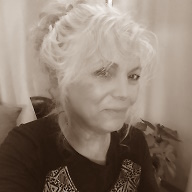
Gabor Maté, MD: Modern Culture Is Traumatizing and NOT Normal
partial transcript of Commune video courtesy of Mad in America
February 4, 2024
From Commune: “In this society, there’s an assumption which shows up in how we talk about things. So when somebody does something selfish or greedy, what do we say: ‘Oh, that’s just human nature.’ But there’s an assumption in that about human nature. Interestingly enough, it’s rarely the case that somebody does something generous or kind or supportive, that people say, ‘Oh that’s just human nature.’ And yet in actual truth, that is human nature, and the greed and the selfishness are not human nature. It’s not that people can’t be greedy or selfish or aggressive or competitive, individualistic and just plain narcissistic . . . But that doesn’t mean it’s our nature.
It’s like, try to understand the zebra. Where would you want to study the zebra — in a zoo, in a small cage in a zoo, or out in the savannah where the zebra evolved and has lived? Well if you really want to understand the nature of the zebra, you wouldn’t study them in a zoo. And so drawing conclusions about human nature from how we live in this society is like trying to understand a wild animal inside a cage . . . What we consider to be ‘normal,’ this ‘normal’ culture that we have here, there’s nothing normal about it, in terms of human needs and human potential. In fact, it’s that gap between human needs and human potential, and the conditions under which we live now, that creates so much illness of mind and body, not to mention so much tension, so much strain, so much hostility, so much division in society in general. And so this ‘commune’ concept actually relates to how human beings evolved: we evolve as communal creatures; we could not have evolved otherwise.
And what we call ‘civilization’ . . . if you just look at our species, if our existence can be summed up in an hour, then until about six minutes ago we lived in small band hunter-gatherer groups, in a communal context. And we evolved in that, and that is our nature because that’s how nature helped us evolve. Every animal has a particular nature that is suited to its particular environment. Now humans can adapt to an infinite range of environments, but that doesn’t mean we do very well in all of them. So, what is considered ‘normal’ in this culture, that is to say what is the statistical norm, it’s got nothing to do with what is normal for human beings in general. And it’s that gap between the ‘norm’ in this culture, and what is really the norm in terms of human evolution and human requirements and human potential, that is the source of so much dysfunction, whether on the mental, emotional, psychological, spiritual, physiological, or social-political levels.
. . . We think we’re living in a scientific age, but actually it’s a very selective relation to the science that we have. We relate only to the science that justifies or supports this particular way of life, this particular socioeconomic system, this particular way of practicing medicine. But we completely ignore the science that shows the interconnected co-arising of phenomena. So that shows up in every realm. Now my colleague and mentor Dan Siegel who’s a psychiatrist here in L.A. has this concept called interpersonal neurobiology, which is . . . a way of understanding the nature of our brains, which is that our brains, our nervous systems are not separate. That how I relate to you, my energetic state, when I look at you or speak to you or vice versa actually affects your nervous system. So we co-create each other all the time. This co-creation, this interpersonal neurobiology, is most dominant of course when we’re small and very much under the influence of our parents and their particular backgrounds and vicissitudes or triumphs. But it’s true all our lives. So our interpersonal nature means that our neurobiology is interpersonal. Now being a physician, I simply remove the word neuro- and I say our biology is interpersonal. So that what happens to us physiologically, and specifically, from the medical point of view, when illness shows up, it is not a unique, isolated event in some isolated, separate, physiological organism or organ, but in fact it’s a manifestation of a life lived in a certain context.
So my friend the physician and psychiatrist Lewis Mehl-Madrona, who’s partly of Lakota Sioux background, gave me a very interesting example when I talked to him. And he said that in the Lakota tradition, when somebody gets ill, the community says, ‘Thank you. Your illness manifests the dysfunction of our community. You’re the canary in the mine. So your healing is our healing, and our healing is your healing.’
Now consider Western medicine. You go to a nephrologist with your kidney disease; they don’t know about your life, don’t even ask about it, except maybe do you smoke and drink. Cardiologists, neurologists, gastroenterologists, dermatologists — they never look at it from the communal point of view, they just look at the particular pathology as if it was only a biological manifestation in a particular organ. So that’s the Western medicine, and what’s incredibly both interesting and . . . frustrating about it is that we have all kinds of science to show that that’s not how it is.
. . . So that’s the first theme here today is just the interpersonal nature of and interconnected nature of all phenomena, as taught by spiritual traditions, and as has now been validated by modern science, and is virtually completely ignored by modern society.”
Connect with Commune at YouTube
Cover image credit: 1388843/pixabay

Kathleen Stilwell, editor and curator for Truth Comes to Light, is a researcher and writer, in awe of the transforming power of courage, kindness and imagination.
Born a truth seeker, she stumbled her way through a life guided by intuition, studying a broad range of topics including natural healing, religions, metaphysics, psychology, globalist agendas, etc. — learning from mistakes, experiencing many awakenings, working a wide assortment of learn-as-you-go jobs, and finding her greatest challenge and sacred responsibility in being a mother, and now a grandmother. While raising her son, she had several blogs over the years, focused on alternative education (freeing our kids from the mind-control prisons) and the danger of vaccines and psych meds for children.











